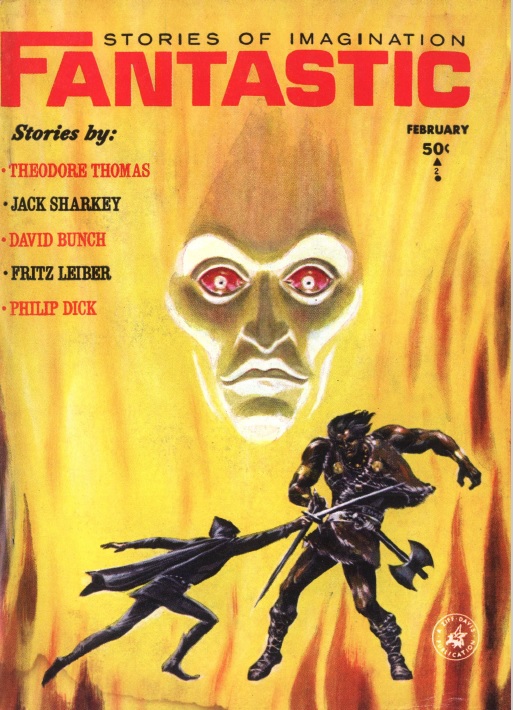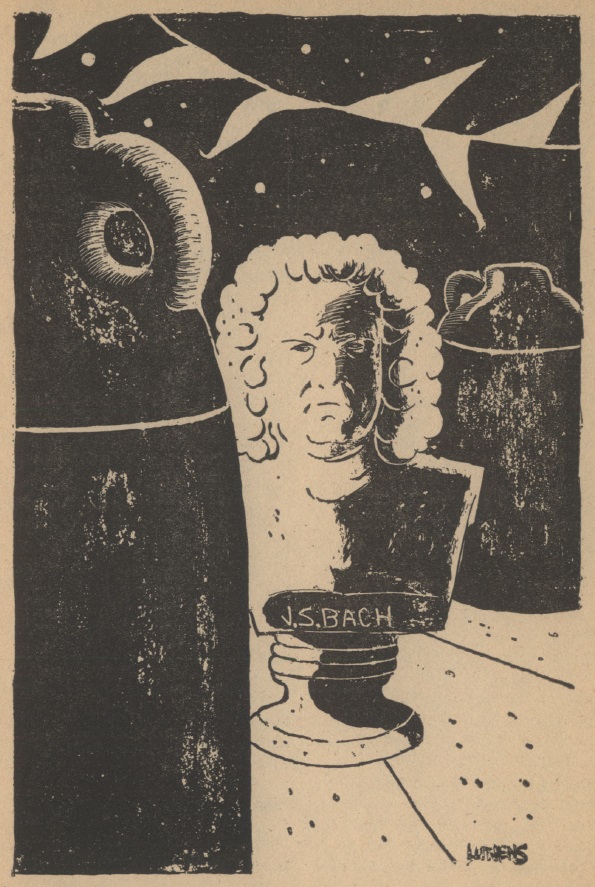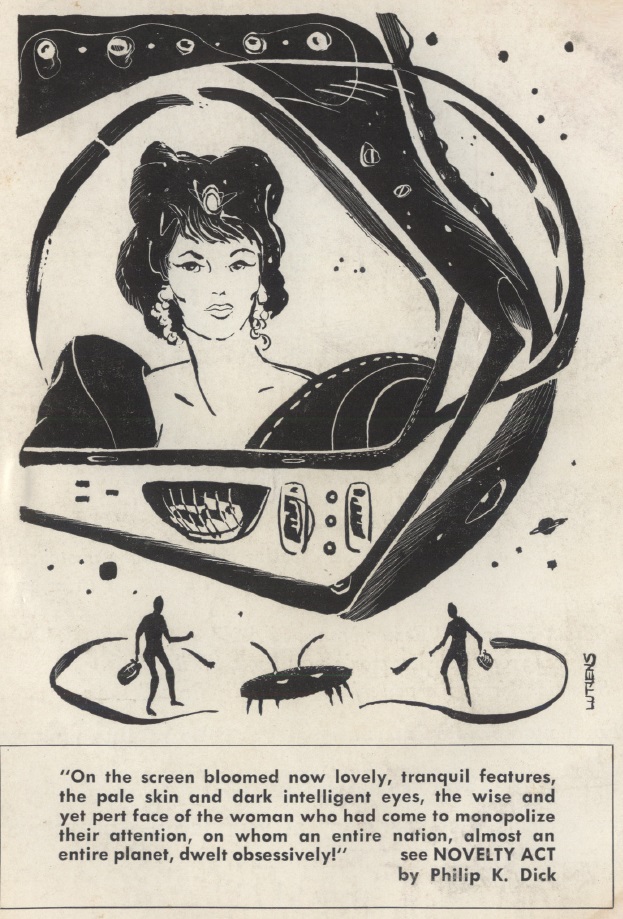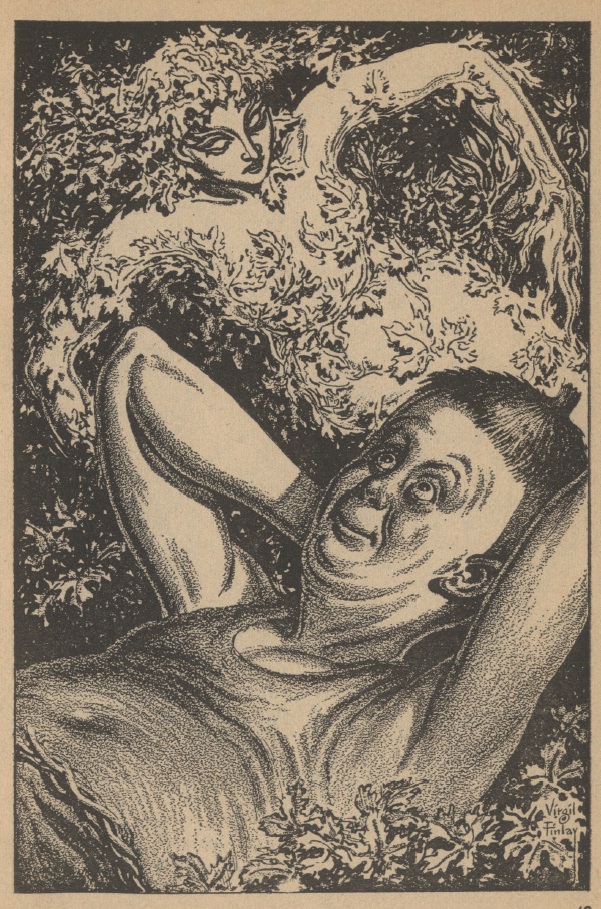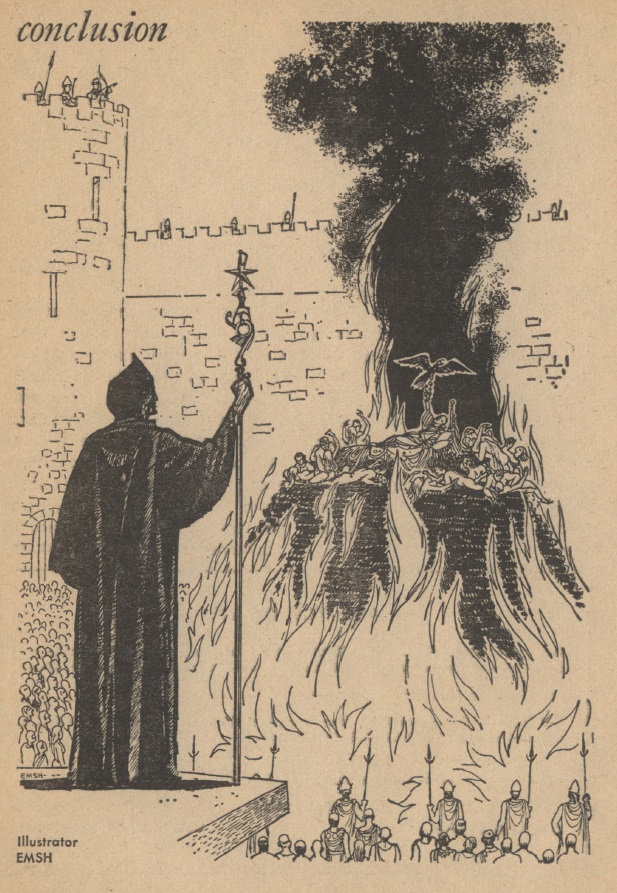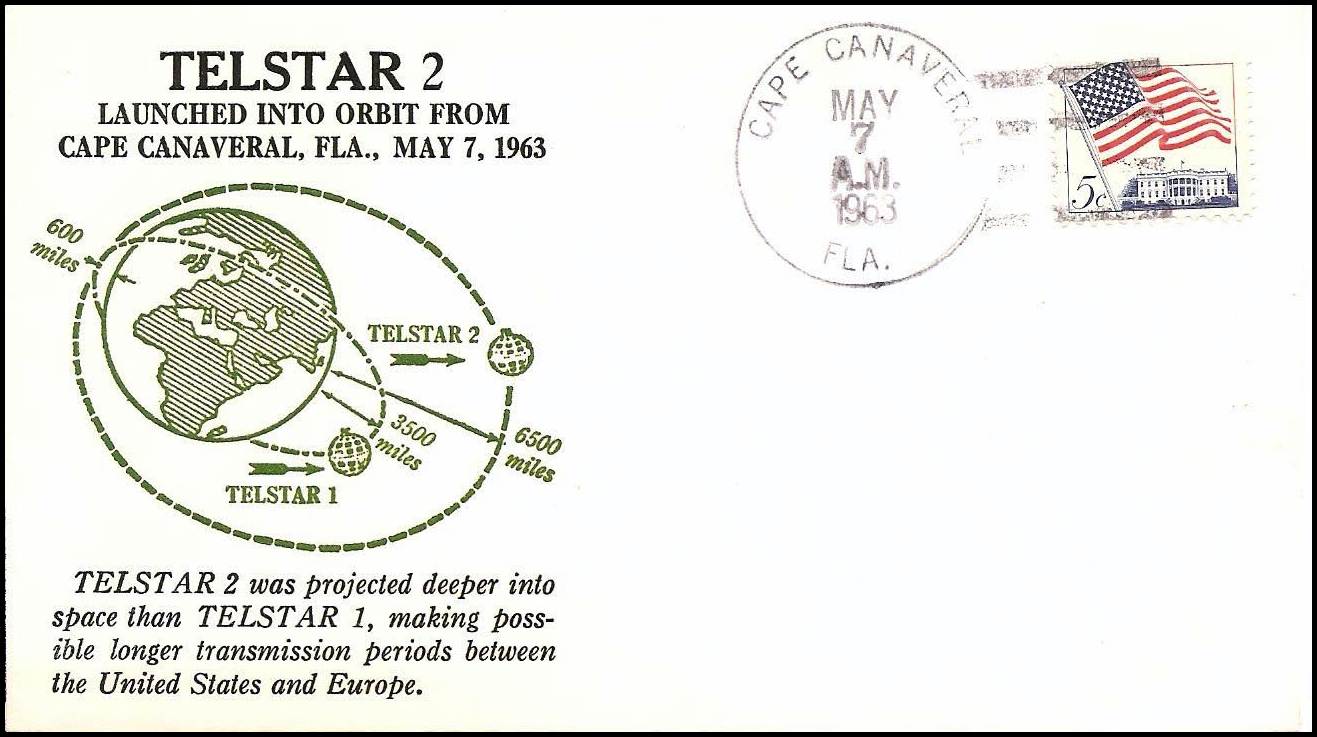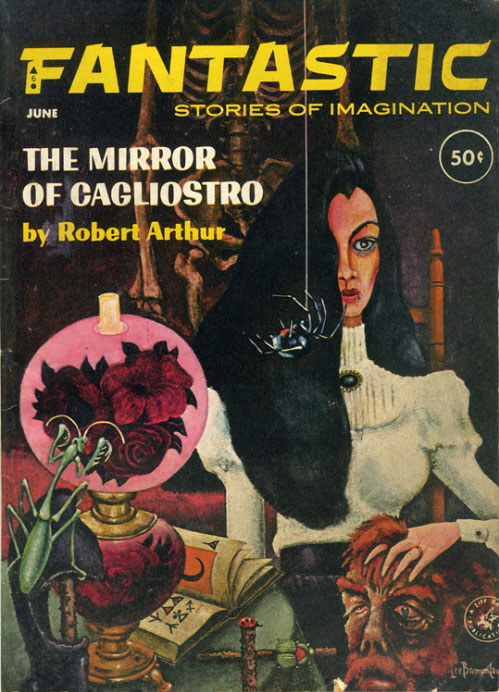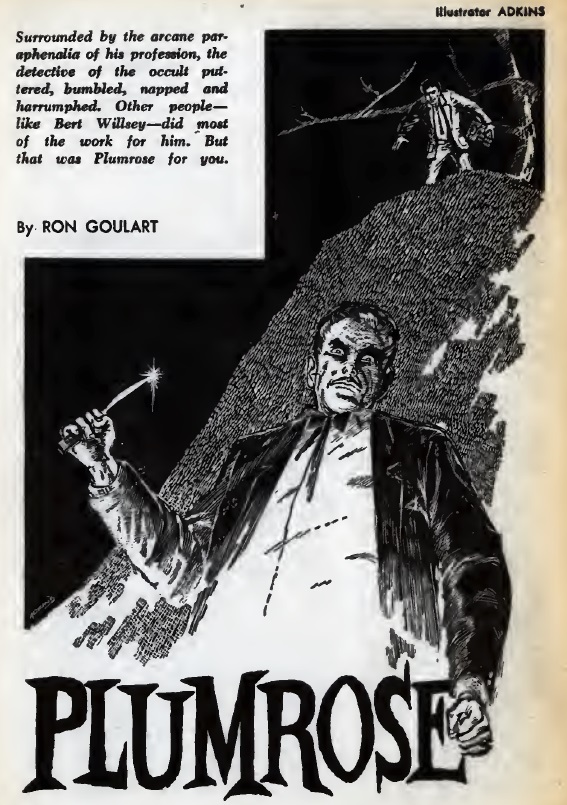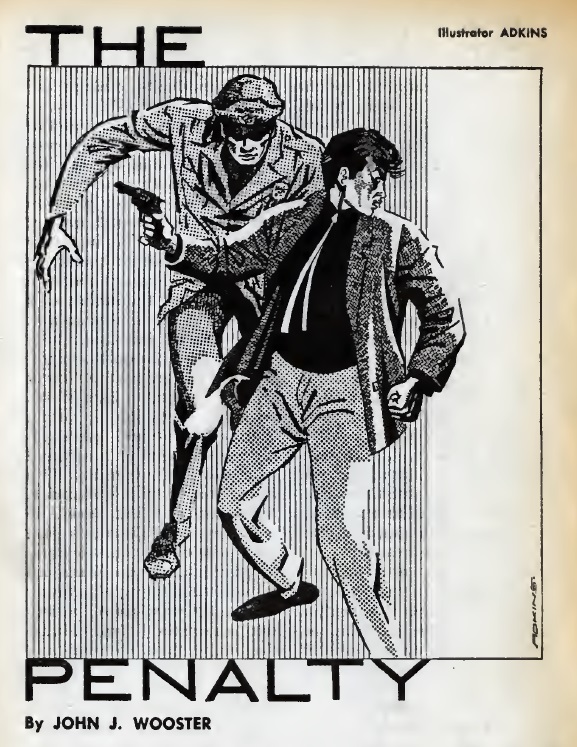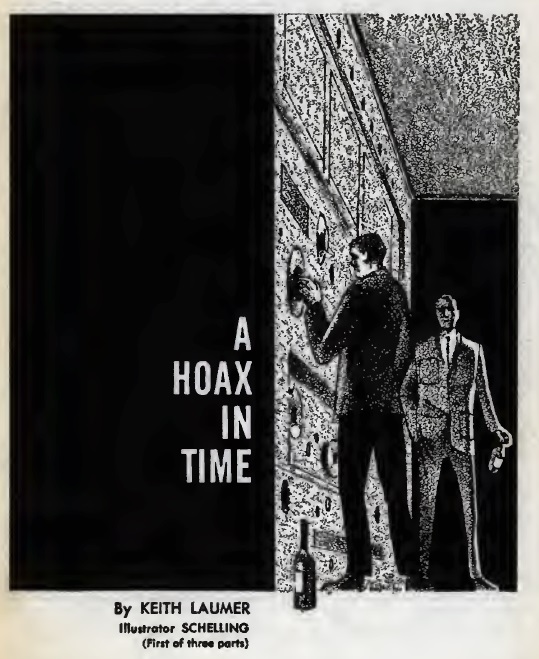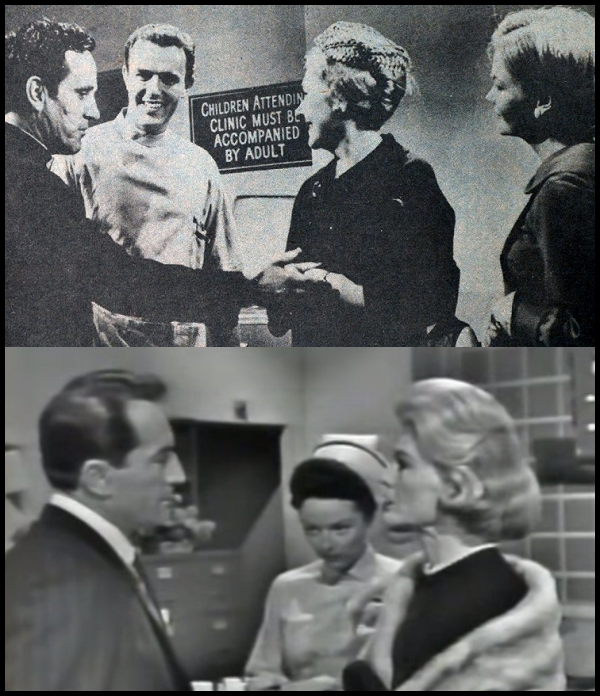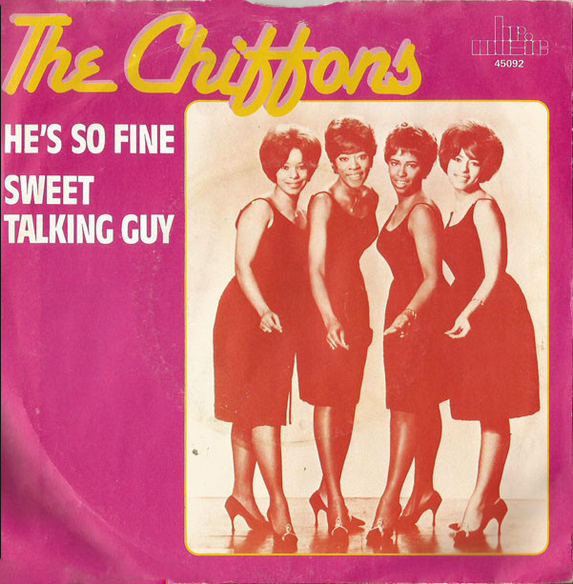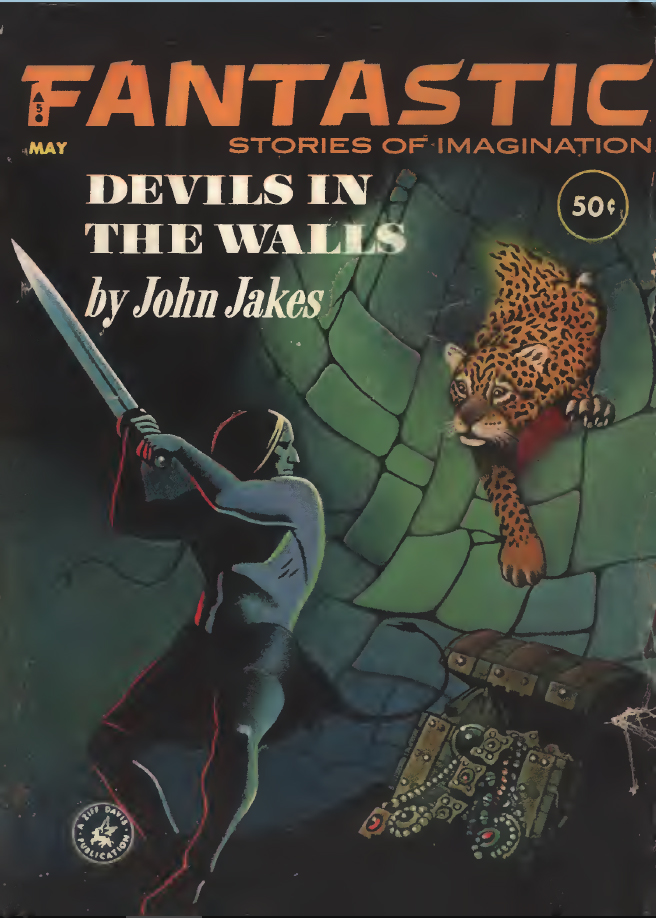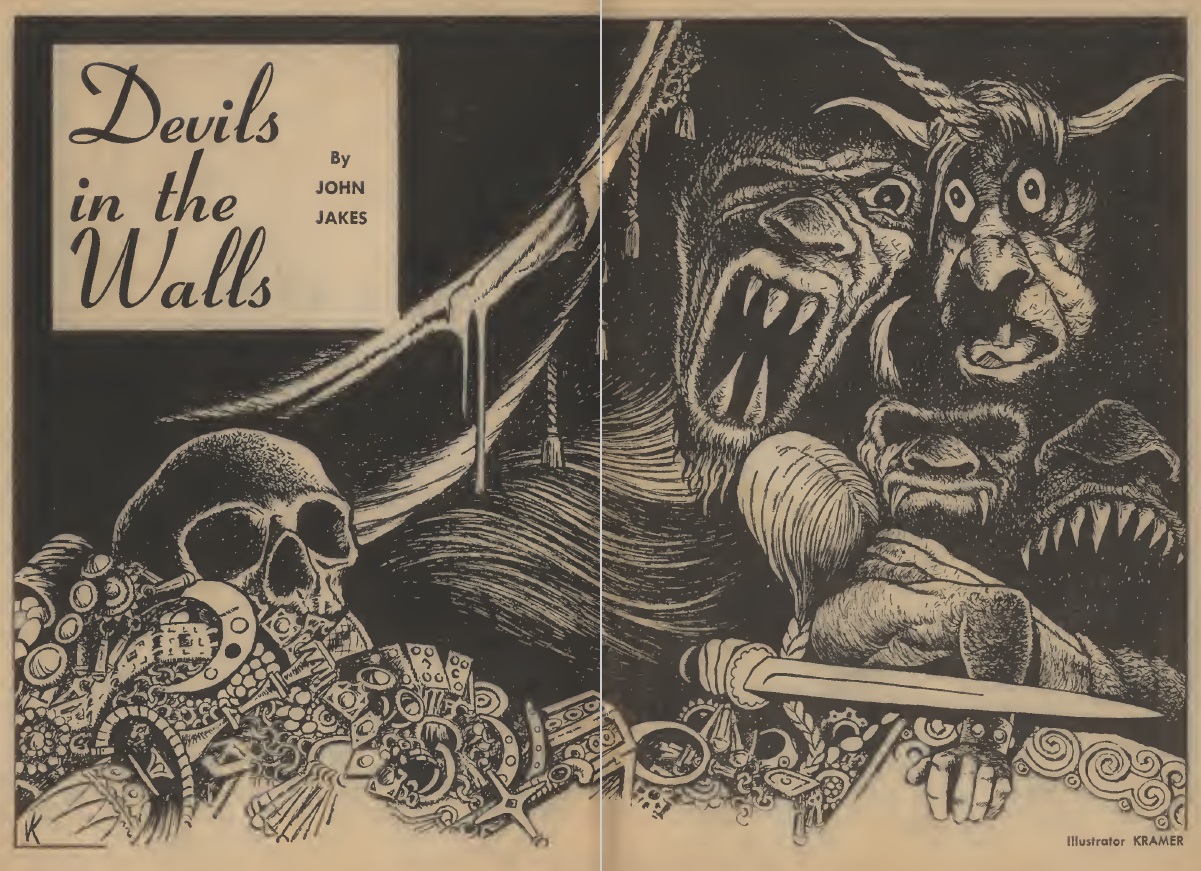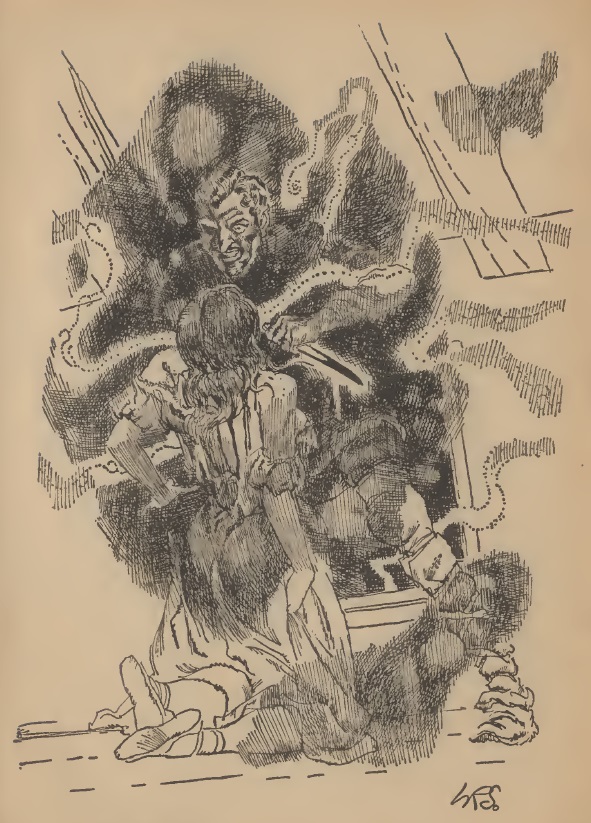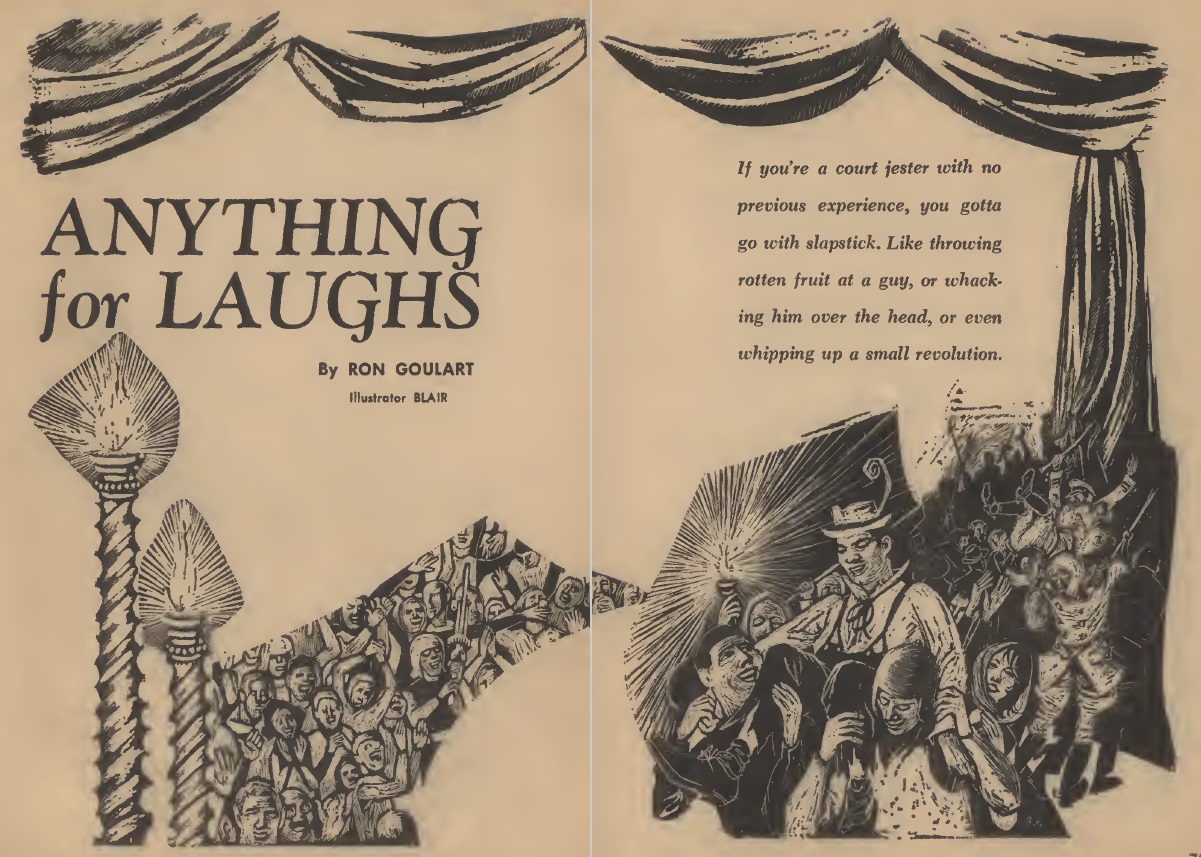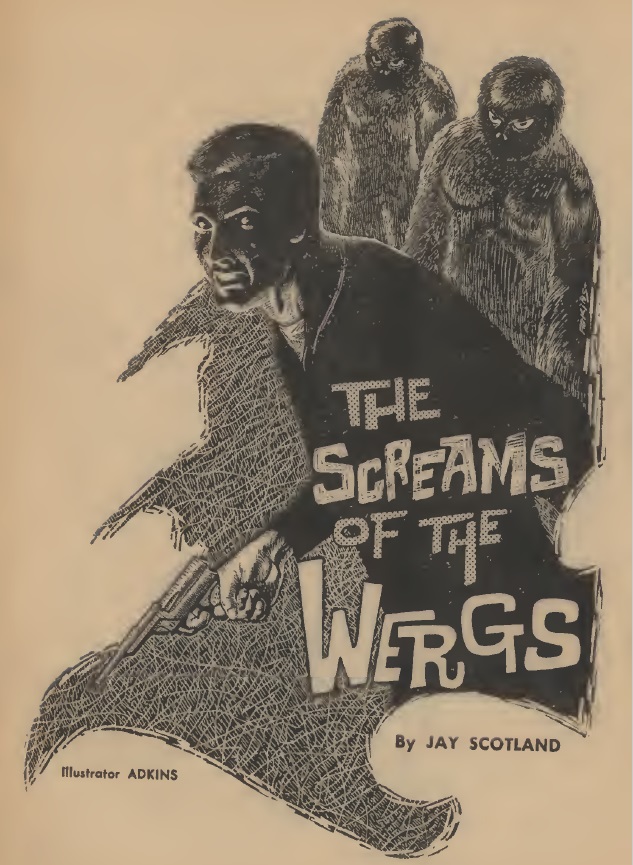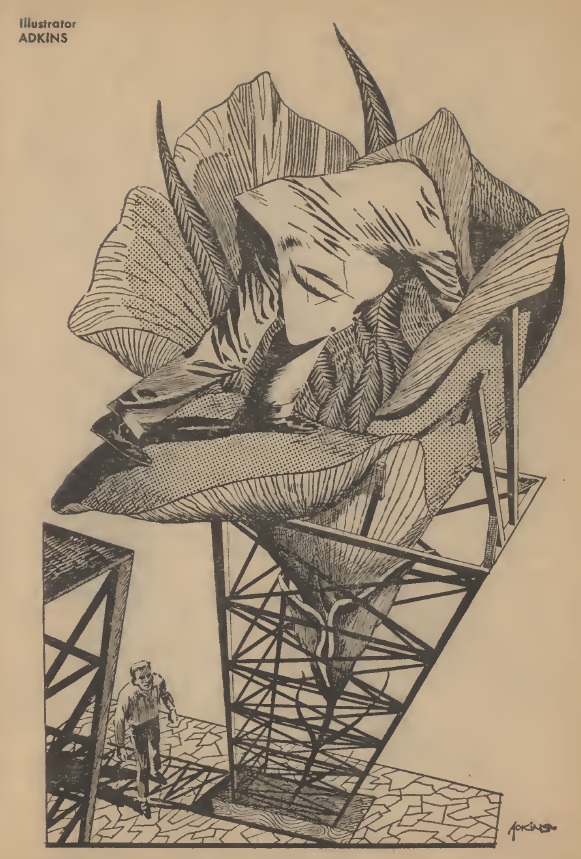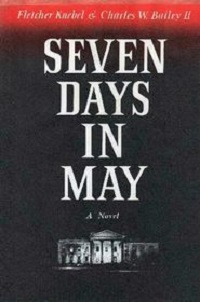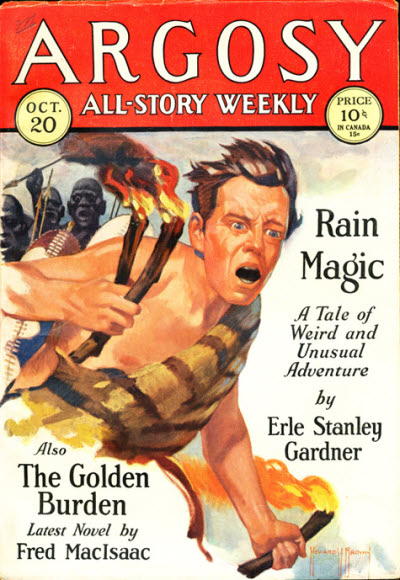
by Victoria Silverwolf
(if you found us at San Diego Comic-Con and can't figure out why we seem to be 55 years behind you, this should clear things up!)
Bad News Drives Out Good News
This month started off in a optimistic way, as President Johnson signed the Civil Rights Act on July 2, after a long struggle with Dixiecrats (segregationist Southern Democrats) and some Republicans.

An historic moment.
The very next day, restaurant owner and unsuccessful political candidate Lester Maddox, with the help of fellow segregationists wielding ax handles, drove three civil rights activists away from his Pickrick Cafeteria.

I hope he continues to lose elections in his native state of Georgia.
Not to be outdone, George Wallace, Governor of Alabama, made an impassioned speech against the Civil Rights Act on the Fourth of July.

You can see the anger that fills this man.
Never before in the history of this nation have so many human and property rights been destroyed by a single enactment of the Congress. It is an act of tyranny. It is the assassin’s knife stuck in the back of liberty. With this assassin’s knife and a blackjack in the hand of the Federal force-cult, the left-wing liberals will try to force us back into bondage.
I don't think I need to point out the bitter irony of Wallace's tirade being delivered on Independence Day. If my disgust at his rhetoric makes me a left-wing liberal, so be it.
On the international front, any hope that United States involvement in the conflict in Vietnam might be lessened was crushed during the Battle of Nam Dong. North Vietnamese forces attacked a camp manned by three hundred and sixty South Vietnamese soldiers, twelve American Green Berets, and one Australian adviser. When the fighting ended, fifty-seven South Vietnamese, two Americans, and the Australian were dead.

Artist's impression of the battle
After such discouraging developments at home and abroad, it seems petty and selfish to concern myself with trivial matters of entertainment. Be that as it may, I couldn't help feeling annoyed when the upbeat Beach Boys tune I Get Around lost its Number One position in the USA to Rag Doll, another cloying melody from my personal bête noire, the Four Seasons.

I won't worry; your music is pretty good.

Silence would definitely be better.
The Issue at Hand
When nothing else pleases me, I turn to imaginative fiction to take me away from my troubles. Unfortunately, after having my expectations raised by last month's excellent offerings, the latest issue of Fantastic proves to be a disappointment.

Cover art and interior art by Emsh
When the Idols Walked (Part 1 of 2), by John Jakes

Brak the Barbarian, whom we've seen a few times before, returns in this new sword-and-sorcery adventure.
The mighty hero is captured when the Bad Guys invade a place he's just passing through and make him a galley slave. A raging storm threatens to sink the huge fleet of slave ships, until the traditional beautiful but evil sorceress calms the sea. Not all is well, however, because a sorcerer from the invaded land shows up in his own ship, and a fierce battle of magic results. After a lot of natural and supernatural violence, Brak falls into the ocean and is washed up on the shore of the next place the Bad Guys intend to conquer.
Things get a lot more complicated after Brak is nursed back to health by the beautiful (but not evil) daughter of a merchant. It seems that the merchant has an enemy with the power to control the spirits of two dead men. One was a strangler, and his ghost still possesses the ability to kill people with a spectral rope. The other was an informer and a libertine and, so we're told, even more wicked than the other. This one can inhabit statues, bringing them to life. (Yes, that's when the idols walk.) Besides all this, the Bad Guys are on the march, the brave ruler of the land is off defending the border, and an ineffective vizier is in charge during his absence. Let's not forget about the sorceress, who is out to destroy Brak.
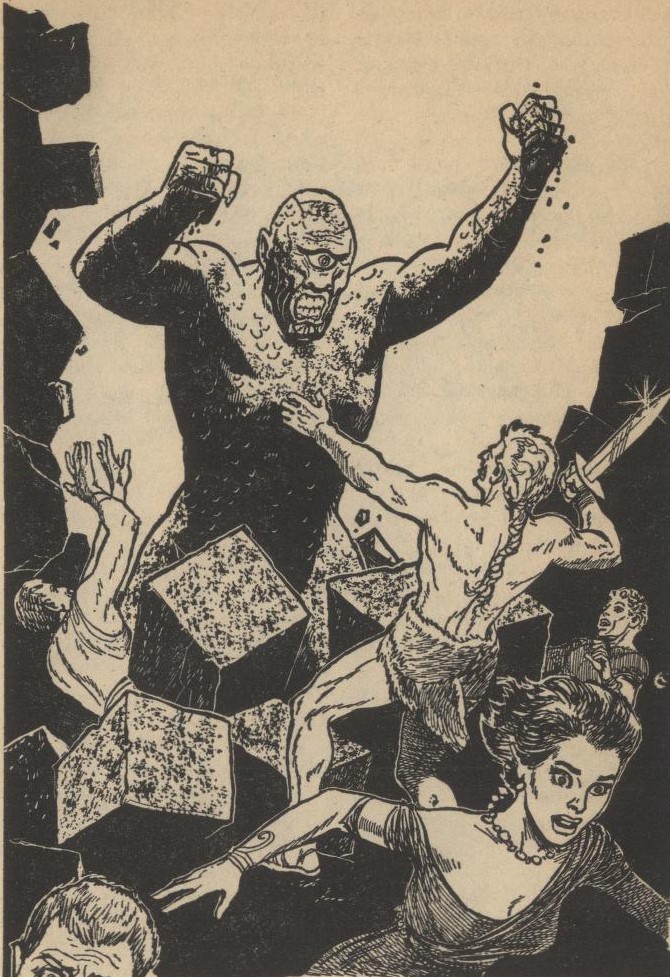
As you can see, a heck of a lot goes on in this fast-moving adventure. The author writes vividly, particularly during the storm and the sea battle, and when a statue of a sinister, one-eyed god comes to life and attacks. It's too bad that the whole thing is so similar to Robert E. Howard's tales of Conan, and feels like it belongs in the yellowed, crumbling pages of a 1930's issue of Weird Tales.
Two stars.
The Scent of Love, by Larry Eisenberg
Human colonists on an alien world make use of the fruit of a local tree. Their problem is that a particularly large and nasty insect attacks the trees. A scientist obtains a substance from female insects that attracts male insects, so they can be trapped and killed. You won't be surprised to discover that this method has unintended consequences. What happens is predictable, and makes me wonder why the colonists didn't anticipate it.
Two stars.
The Failure, by David R. Bunch
Here's another strange and disturbing piece from a writer with a style like nobody else. It's very hard to follow, but as best as I can tell it has something to do with one character seeking ultimate knowledge, and the narrator reacting to the results of his quest. If it has a point, it may be the futility of all human effort. As usual for Bunch, the frenzied language of the story holds the reader's attention, but it's not a pleasant experience.
Two stars.
Family Portrait, by Morgan Kent
This brief tale from a new author starts off with a typical evening at home, as Mom and Dad try to get their young child to go to bed. Things get odd about halfway through the story, and the characters turn out to be something other than ordinary. That's about all there is to an inoffensive, if trivial, bit of whimsy.
Two stars.
Footnote to an Old Story, by Jack Sharkey
A meek little fellow goes on vacation on a Greek island, where he falls in unrequited love with a beautiful young woman. After reading the Bible story about Samson, he grows his hair long. Apparently through sheer will power he changes himself into a muscular he-man and gains the attention of the woman. You'll predict what happens at the end, given the setting, the woman's name, and, unfortunately, the excellent illustration by Virgil Finlay, which gives away the whole thing. It's pretty well written, but way too long for a story with an obvious twist ending.

I warned you it gave away the plot.
Two stars.
Dangerous Flags: Another Adventure of the Green Magician, by Thomas M. Disch
This is a goofy fantasy, or maybe a mock fairy tale, set in an absurd version of the modern world. Coal gas emerges from underground mines in a Pennsylvania town, threatening the local population. The Green Magician (who, as far as I can tell, has never had any other adventures, at least in published fiction) fights the sinister English Teacher and her Rich Nephew. (The capitals are the author's.) A lot of random stuff happens. The English Teacher asks some inexplicable riddles. The Green Magician turns into powder. The English Teacher recites three poems. A Snow Fairy shows up. I guess it's supposed to be funny, but I didn't get much amusement out of it. I have the feeling that Disch is making fun, in a disdainful and superior way, of the kind of stories that appear in Fantastic.
Two stars.
Land of the Yahoos, by Adam Bradford, M.D.

Illustration by George Schelling.
If the Fates are kind, this will be the last rehashing of Gulliver's Travels from the pen of Doctor Joseph Wassersug, hiding under the name of his fictional narrator. As we saw three times before, he winds up in one of Swift's imaginary realms. This time it's the land of the Houyhnhnms, a race of intelligent horses, and the Yahoos, a clan of bestial human beings. He doesn't spend much time with the highly civilized Houyhnhnms, and most of the story is an obvious analogy between the Yahoos and modern society. The Yahoos are greedy for rocks, the way people are greedy for money; they waste time at social gatherings they don't really enjoy, the way people attend dull cocktail parties; and so on. As in previous entries in this series, the author wastes a lot of time getting the narrator to his destination. This story also drags on near the end, as the narrator completes a minor task mentioned in a previous tale. By making the Yahoos semi-civilized, with clothing and a language, Wassersug weakens the intent of Swift's misanthropic satire.
One star.
Look for the Silver Lining
After a particularly dismal bunch of stories, things can only go up from here. Maybe the next issue will be better. I can also look forward to a promising new film based on a classic tale by one of the pioneers of science fiction, as well as the latest novel from an author whose first book was nominated for a Hugo. Watch for my reports on these two exciting possibilities in the near future. Until then, remember to let a smile be your umbrella!

A scene from the new French film Les parapluies de Cherbourg (The Umbrellas of Cherbourg), not yet seen in the USA, in which all the dialogue is sung. I guess that makes it a fantasy film.

![[July 20, 1964] Dashed Hopes (August 1964 <i>Fantastic</i>)](https://galacticjourney.org/wp-content/uploads/2019/07/26179-400x372.jpg)
![[June 22, 1964] The Bridal Path (July 1964 <i>Fantastic</i>)](https://galacticjourney.org/wp-content/uploads/2019/06/640622cover-477x372.jpg)


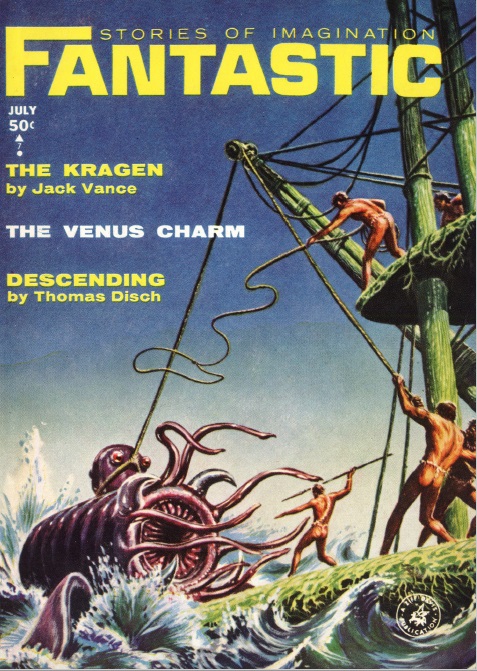

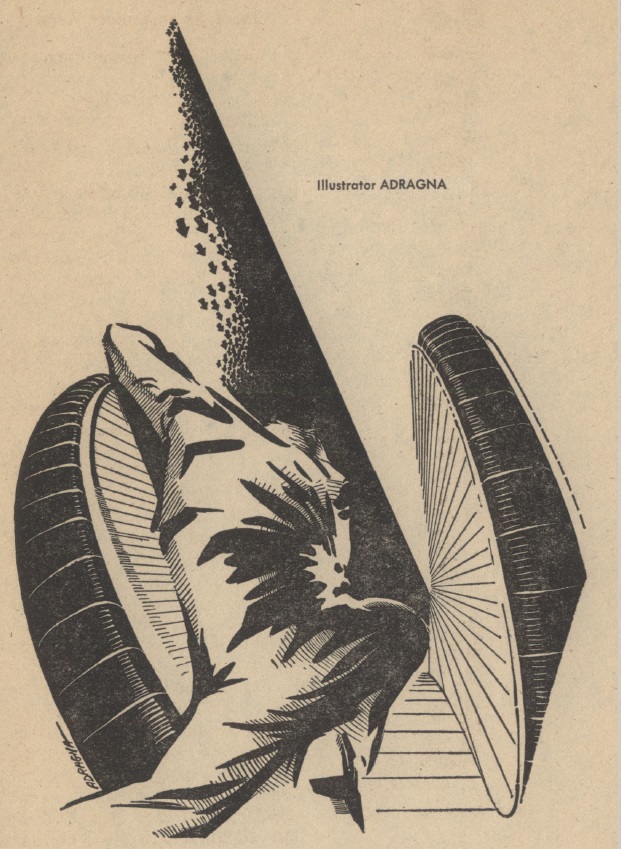



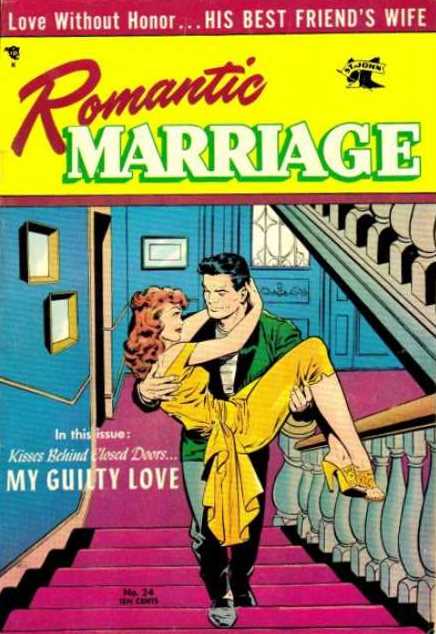

![[April 22, 1964] World Affairs (May 1964 <i>Fantastic</i>)](https://galacticjourney.org/wp-content/uploads/2019/04/640422cover-601x372.jpg)















![[February 23, 1964] Songs of Innocence and of Experience (March 1964 <i>Fantastic</i>)](https://galacticjourney.org/wp-content/uploads/2019/02/640223cover-672x372.jpg)









![[January 22, 1964] The British Are Coming! The Americans Are Here! (February 1964 <i>Fantastic</i>)](https://galacticjourney.org/wp-content/uploads/2019/01/640122cover-513x372.jpg)



